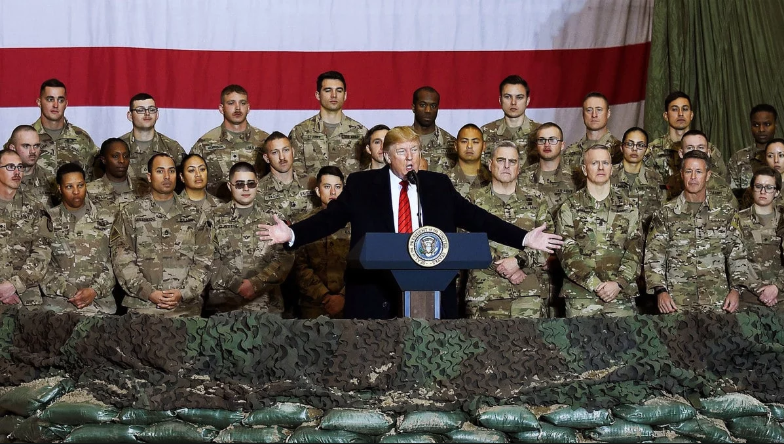Senior Iraqi officials worriedly called their American counterparts on Monday after a letter from a top general in Iraq appeared to accept the Iraqi parliament’s vote to remove the 5,000 U.S. troops stationed there, according to an Iraqi official and another individual familiar with the matter. The letter was quickly disavowed, minutes after it became public.
In the latest indication of strategy confusion sprawling out from President Trump’s assassination of Iranian general Qassem Soleimani, U.S. officials told the Iraqis to “not worry about it,” as both sides attempted to determine what their uneasy bilateral relationship will become.
The letter, penned by Marine two-star general William H. Seely III on Monday and addressed to the Iraqi defense ministry, said that the U.S. military command would be “repositioning forces” in the near future as preparation “for onward movement,” seemingly out of Iraq.
“We respect your sovereign decision to order our departure.” Seeley added.
The day before, the Iraqi parliament’s voted to expel the U.S. in the aftermath of the lethal drone strike in Baghdad that killed both Soleimani and Iraqi militia leader Abu Mahdi al-Muhandis. But while the parliamentary vote underscored the precarity of the U.S. position in Iraq, it is yet to
be a binding decision, as the Iraqi Prime Minister, Adil Abdul-Mahdi, is operating in a caretaker capacity following his November resignation.
Seeley’s letter circulated widely on social media – so much so that Defense Secretary Mark Esper and Gen. Mark Milley, the chairman of the Joint Chiefs of Staff, told reporters that the letter was a mistake that should not have been either drafted or released. Esper said the Trump
administration has made “no decision” to leave Iraq as yet.
The letter was “poorly worded, [it] implies withdrawal, that is not what’s happening,” Miley said.
But in response to Iranian threats of vengeance for Soleimani, the U.S. military command has suspended all Iraq operations, both the training of the Iraqi military and the central rationale for their post-2014 presence, combatting the remnants of the so-called Islamic State.



